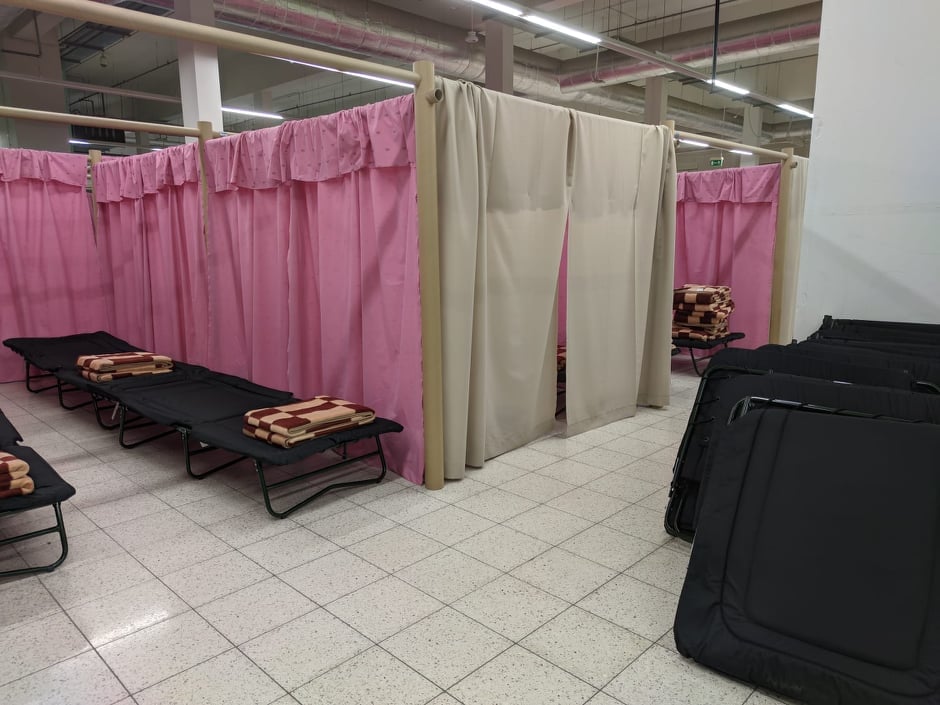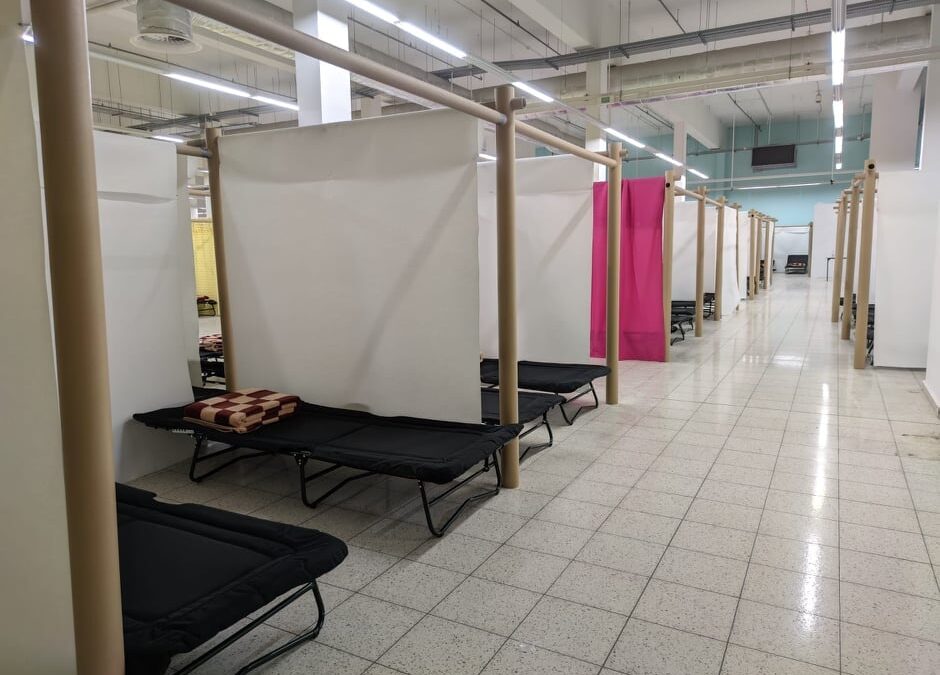A new shelter in a city near Poland’s border with Ukraine is offering up to 2,000 refugees some degree of privacy with innovative cardboard-and-cloth cubicles designed by an award-winning Japanese architect.
The facility has been set up in Chełm at the site of a former Tesco supermarket. The city, which is 25 kilometres from the border, has a particularly high demand for temporary shelter as several thousand refugees currently pass through it every day, reports TOK FM.
The city council approached the owners of the building – which closed when Tesco ceased operating in Poland last year – and were given permission to use it for free.

The local authorities then worked with the nearby Lublin University of Technology to create the small cubicles. They are constructed from cardboard pipes with paper or cloth curtains draped over them to act as walls.
The idea is to make the people staying at the shelter more comfortable. Each of the more than 300 “rooms” has two or four camp beds, assuring residents some privacy.
The cubicles were designed by Shigeru Ban, a Japanese architect who won the 2014 Pritzker Prize, partly in recognition of the idea. His design has subsequently been used in a number of countries affected by humanitarian catastrophes, including Rwanda, Turkey, India and Haiti. Ban himself visited Chełm to oversee the work.
One member of the team working on the project was Jerzy Łątka of Wrocław University of Science and Technology, who previously interned with Ban, learning about use of cardboard in architecture. He managed to secure free supplies from cardboard company Corex, reports new website Noizz
“The most common solution used in emergency situations where a large accommodation base is suddenly required is setting up beds in a large hall,” Hubert Trammer, an architect who took part in the construction, told news website Noizz.
“But when you put partitions in, people sleep in groups of a few people and you can give them some kind of intimacy so they can at least get changed,” he continued.
A large “shop” offering free clothes for refugees from Ukraine has opened in a disused Kraków shopping mall, which has itself also been turned into a temporary shelter for hundreds of refugees https://t.co/bRr6DNyGm5
— Notes from Poland 🇵🇱 (@notesfrompoland) March 14, 2022
Within days, material for 1,200 modules was produced. Apart from those in Chełm, a further 100 cubicles have now been constructed by Łątka and his students at the main railway station in Wrocław, with more to be added elsewhere in the city.
Other cities in Poland have also expressed an interest, reports TOK FM, while further components prepared in Chełm are being sent to Lviv in western Ukraine.
Over 1.8 million people have crossed from Ukraine into Poland in the three weeks since Russia’s invasion. Around 30,000 of those have passed through the reception point in Chełm. Evacuation trains arriving in the city have had more than 2,000 passengers, mainly women, children and elderly people, often with nowhere to go.
While some of the Ukrainians arriving in Poland have moved on to other countries, a significant proportion have remained. That has presented significant challenges to local authorities in the cities where they are arriving.
In Kraków, which has received over 100,000 refugees, a new shelter has been set up in a disused shopping mall, along with a “shop” offering free clothes for refugees. Meanwhile, many Poles have been hosting refugees in their homes.
Recently, however, a number of large cities – including Warsaw – have warned that they have reached the limits of their capacity to help. They have called on the government to provide more support and also to turn to the European Union and United Nations for help.
Image credit: Miasto Chełm/Facebook

Ben Koschalka is a translator, lecturer, and senior editor at Notes from Poland. Originally from Britain, he has lived in Kraków since 2005.




















